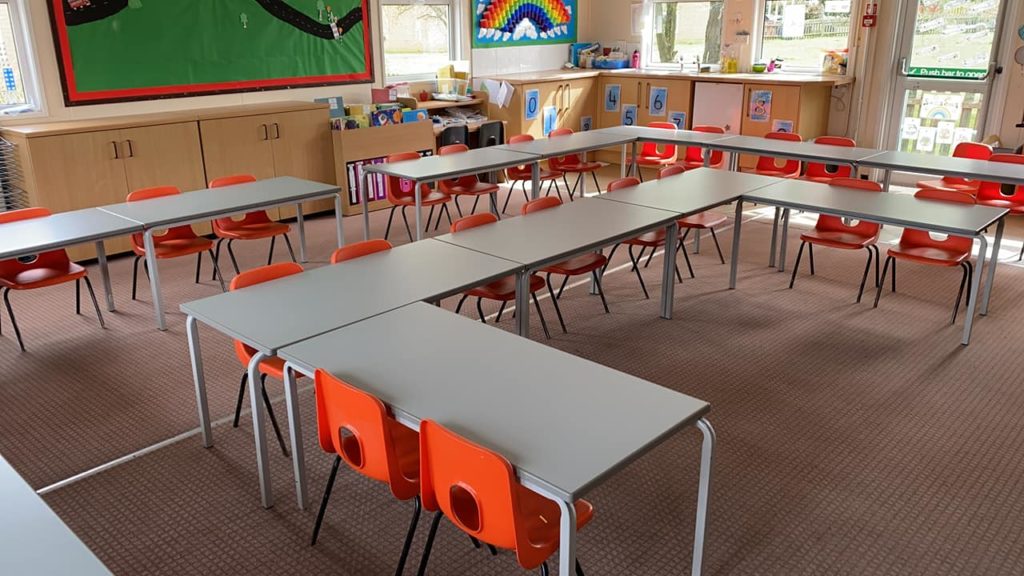
Several news outlets have reported recently about the staff shortage crisis affecting schools, and by extension, the state of education for current and future generations of disabled children across the United Kingdom.
Some of the main issues that were highlighted in Ofsted’s latest report include greater staff shortage due to Covid-related absences, a decrease in freshly hired nursery and early years staff due to competitive pay, an increased mental health epidemic in classrooms, and alarmingly, a lack of proper special educational needs and disabilities (SEND) support for disabled children.
Education, health, and care (EHC) plans are the bedrock that ensures that children with disabilities and specific requirements get the support they need, and these are backed directly by SEND. Ideally, the help set out within these plans is applied for by parents and guardians, and then approved by the local authority within twelve weeks. However, Ofsted‘s reported numbers of confirmed plans have fallen seriously short, with only 60% being delivered within this time period, which leaves parents and their children to struggle.
One of the key indicators for the fall in SEND support has seen an increased need for its services since the pandemic. More than ever, due to delays and backlogs that have piled up since 2020, the likelihood of getting a swift response and approval from local authorities has deteriorated at a rapid rate across the country.
The Department of Education has since claimed that in response to this, they will invest over four hundred million pounds into increased SEND support next year.
When the needed funding reaches the head of schools and their local authorities, it is integral that they also recognise the needs of disabled children, as well as children that SEND defines as “special needs” (at Direct Access, we prefer not to use this term) by reviewing school action plans for accessibility.
Providing accessibility in schools is more than just about implementing wheelchair ramps and accessible restrooms; it also means integrating unique education plans that allow disabled children to receive their education correctly.
One reason the Ofsted review alarmed us is that the consequences of the experiences faced by disabled pupils across the UK as a direct result of this crisis will have a lasting effect on them into adulthood. SEND support allows blind and deaf children access to accessible formats and is also key to the funding of sign language interpreters for the latter. It also allows schools to provide specialist support such as teaching assistants for cognitively disabled children, and even influences the layout of the learning environment itself, where classrooms can be tailored to meet the needs of neurodiverse children who need a clear learning environment that separates the reading area from the computer area, and so on.

One of the key requirements of the Department of Education guidance on the Equality Act is for schools to publish their action plan.
Direct Access education audits are an integral part of school action plans, setting out quick wins and longer-term opportunities to improve accessibility
for all children.
School accessibility audits also ensure that every aspect of the school environment, including gyms, dinner halls, and playgrounds are accessible to all, allowing authorities to properly integrate special needs and disabled pupils within day-to-day school activities and the broader curriculum.
As well as being a necessity from a legal perspective, providing access for children is vital for their social environment, as it demonstrates the diversity of life experience from a young age and allows disabled children to grow up in an accepting environment. Doing this also means that their non-disabled peers are less prone to ignorance, growing up with perspectives beyond themselves and their experiences, and becoming more accepting of others.
Accessibility audits are also vital from a safety perspective, allowing schools to create environments that are less hazardous and influencing correct evacuation procedures when dangerous circumstances arise. Our audits for schools include a review of all evacuation plans, equipment, and fire alarms, building a learning environment that is safe as well as inclusive.
Our school auditors (who have experience working within school environments) will also review signage on-site for accessibility, floor surfaces for slip resistance, and even the lighting and colour contrast of classrooms. Paying attention to these finer details helps ensure that children are less likely to experience injury and sensory overload and can meaningfully engage with their learning as a result.
Direct Access Education Consultant Sophie adds “Teaching and support staff will work tirelessly to ensure that the school and classrooms
that they are responsible for are appropriate for all of their students, with the aim to have an inclusive learning environment. However, when there are
extended time frames for students waiting to receive support, perhaps due to a lack of funding or a limited number of staff, a truly detrimental effect can
develop on an individual engaging with their education. This is hugely prevalent within a school setting, where vast amounts of students are expected to engage with their surroundings, despite perhaps not getting the individual and specific support they both need and deserve.
The British Standards, Equality Act, Approved Documents, PAS6463, and much other documentation are referred to during our accessibility audits. With the 2022 release of the PAS6463, more attention is being drawn to how an environment can affect people with cognitive and neurodiverse sensitivities; including areas such as how noise, lighting, colours, and tones, as well as biophilic design, can impact the ways in which an individual interacts with their surroundings. When a teacher is aware of an individual’s needs, changes can be made.”